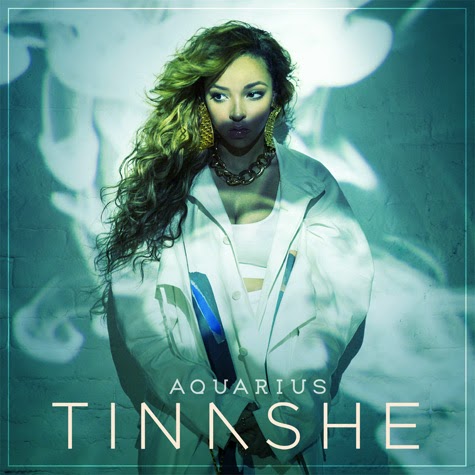Album Review: Tinashe- Aquarius
A conversation with my wife in the car:
My wife, Wendy—“So, uh, what are we listening to?”
Me—“Tinashe.”
(Aquarius track 8,
“Pretend,” plays in the car)
Wendy—“Are you really into pop music now, or something?”
Me—“No, I mean, this is supposed to be R&B but yeah I
guess this song is very poppy…”
For someone that was born the same year Janet Jackson
released the milestone record Janet,
and was a mere four years old by the time Jackson’s follow up, the heady Velvet Rope, was released, Tinashe’s
debut full length, Aquarius, owes a
lot to both of records. An amalgamation of its influences as well as a
reflection of the times (“alternative R&B”), the record covers a myriad of
styles and tones, never settling into one comfortably, and teeters on becoming
derivative of them all.
In the Pitchfork review of Aquarius, writer Meaghan Garvey quickly points out that as a major
label effort, it is done “unmistakably on Tinashe’s own terms.” I wouldn’t go
so far as to say that I disagree with that, but I would say that the big name
cameos, single produced by DJ Mustard (ugh) and overall style hopping lead me
to believe that Tinashe isn’t a product of some shady record executives, but
that she isn’t exactly in complete control of her direction at this point.
I mean, comparing the photo used on the Aquarius cover with that of the post-Badu blackness that she
sported on her Black Water mixtape
from last fall should be a clear indicator…
But anyway…
Aquarius is a
deceptive 18 tracks long, but only 12 of those are actually songs. Again,
borrowing heavily from both The Velvet
Rope and Janet, Tinashe relies a
little too often on interludes in between tracks. In an era of digitally
consumed music, putting a 20 second clip between two songs just seems kind of
unnecessary to me. Musically, whether this was intentional or not, the album
seems to be compartmentalized by style: opening with the
atmospheric/alternative or whatever R&B, it segues then into “songs that
feature a guest spot from a popular rapper of the moment,” then a kind of mixed
bag of both synth heavy pop-leaning and throwback R&B.
Lyrically, while there were questionable moments on both of
Jackson’s efforts, she was at least attempting to say something profound (see Velvet Rope’s closing track “Special” if
you doubt me at all.) Even with three mixtapes behind her, and even with her
being credited as songwriter on a number of the album’s tracks, Tinashe could
benefit from some more time to mature as a songwriter with something to say. A
bulk of Aquarius, believe it or not,
is about either partying (see “2 On”) or getting it on (see, oh I don’t know,
like almost every song.)
Yeah I know it’s tough to believe an R&B artist in 2014
would make a whole album about having a lot of sex, but in this case, it just
comes off as a little cloying.
Are there noteworthy moments on Aquarius? Sure. The title track (and also opening track) slinks
along sensually, and the pitch shifted vocals and trap-style percussion on
“Bet” are at least interesting enough to take away from how repetitive the
refrain is. That is actually a problem that seems to present in more than one
song on Aquarius: it’s a problem as
in it seems to insult the listener’s intelligence by just repeating one line a
bunch of times and calling it the song’s hook, but in the case of a song as insipid
as the album’s lead single “2 On” is, it’s infectious. Whether you want to be
repeating the phrase “I love to get 2 On” in your head, over and over again,
all day, you will be. Thanks DJ Mustard!
A lot of attention has been drawn to “2 On.” Released as a
single 10 months ago, it eventually made it into the top 40, which I think was
the entire point of releasing it as a single. Arriving just a few weeks after
her Black Water mixtape, Tinashe said
that this song was a track to showcase the fact that she could make music that
could be played on the radio. It also features a revolting guest verse from
rapper and bucket hat aficionado Schoolboy Q.
The problem with Aquarius
is the problem that a lot of mainstream pop albums have in 2014—it suffers from
a complete lack of cohesion. In an effort to promote versatility in the artist
in question, each song ends up being produced by a different person; therefore,
the record is really only connected by the artist’s voice. Comparing Tinashe
and Ariana Grande seems like comparing an apple to a fruit that nobody has ever
heard of before, but Grande’s most recent effort also met with the same
problem—too many different sounds and styles, with no real take away at the
end.
I went into Aquarius
not with “high hopes,” but with hopes never the less. It’s not an unlistenable
album—like most pop music out there, you can find at least one or two things to
like about it—but it, like most pop music out there, fails to resonate much
after you’ve finished listening.
